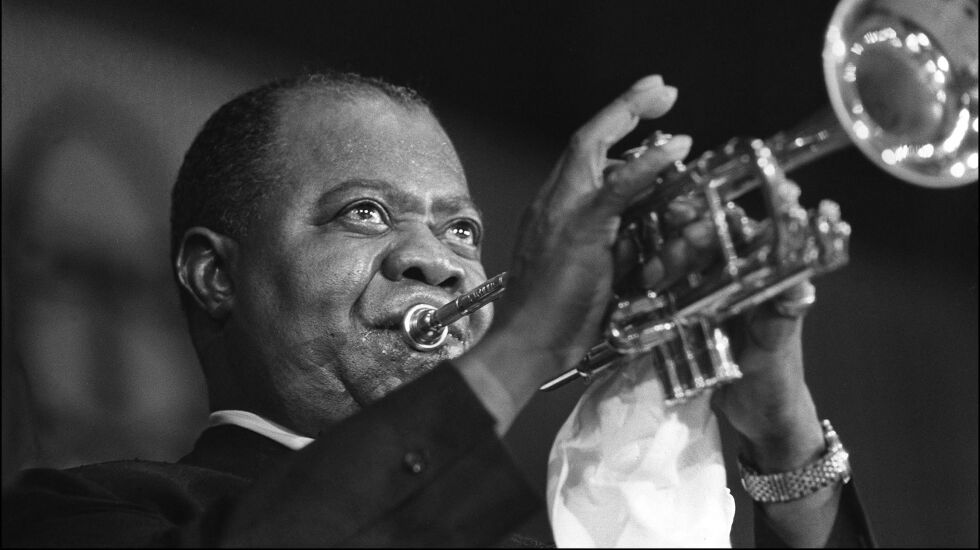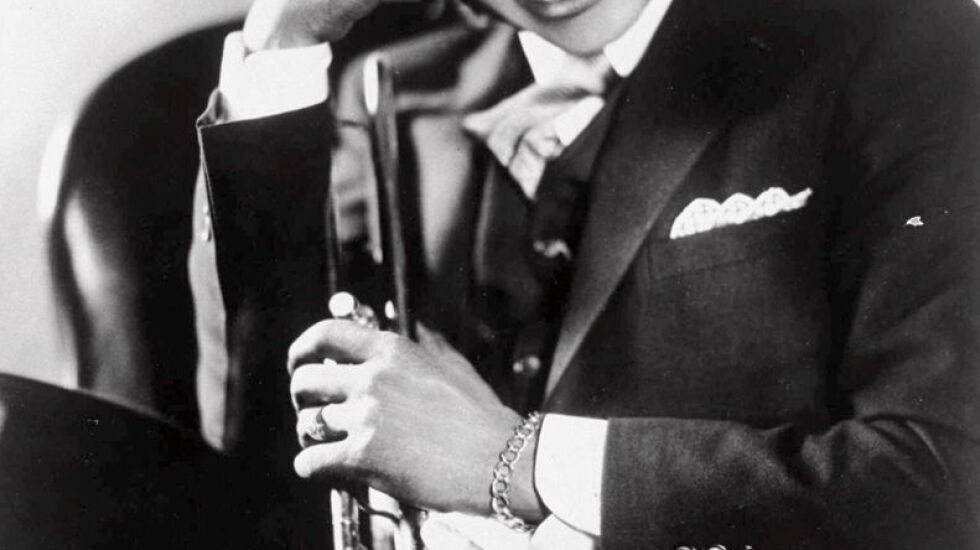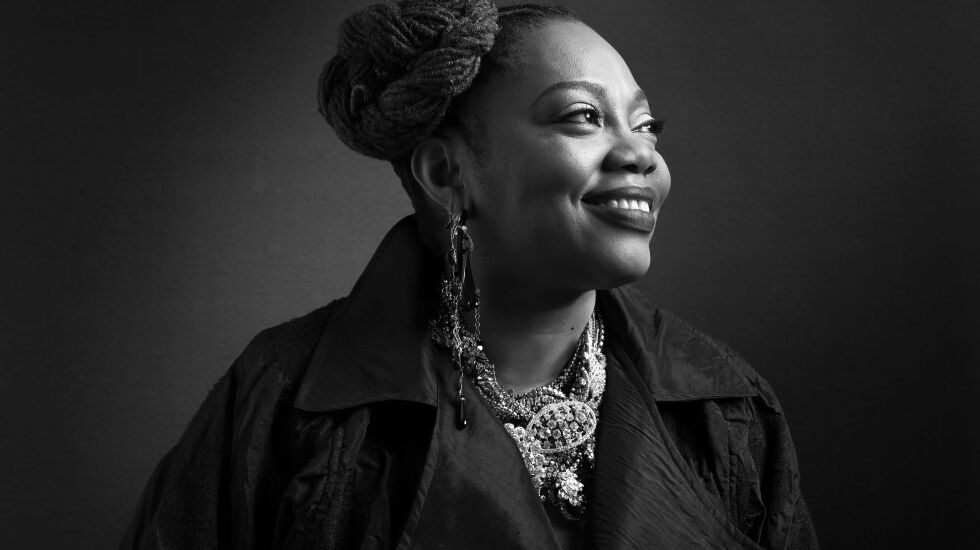
It is no surprise that the new Broadway-bound musical about Louis Armstrong is called “A Wonderful World.” The jazz immortal is best known these days for his late-career vocal hit, “What a Wonderful World.” It’s an inescapable tune, a staple of movie soundtracks, easy-listening stations and Armstrong tributes, including one in which Kenny G overdubbed himself on the recording.
One hopes that “A Wonderful World,” which will run Oct. 11-29 at the Cadillac Palace following a weeklong run in New Orleans, lives up to the title. Revamped from its world premiere in Miami two years ago, the new version stars James Monroe Iglehart, who won a Tony Award for his performance as the Genie in “Aladdin.” and more recently appeared as Marquis de Lafayette/Thomas Jefferson in “Hamilton.” It tells Armstrong’s story from the perspective of the women in his life.
But as anyone with even a passing interest in Satchmo knows, the song, a squishy, nostalgia-drenched heartwarmer, is not the place to start for those who want to know what made Armstrong one of the great geniuses of the 20th century — an artist whose unprecedented virtuosity, musicality, inventiveness and daring stood jazz on its head in the 1920s and continued producing miracles throughout his career.
On classics such as “West End Blues” and “Potato Head Blues,” recorded in Chicago in 1928 with his storied Hot Five, Armstrong virtually invented the jazz solo. His clarion trumpet sound did Gabriel one better. His influence on succeeding generations, as a singer as well as horn player, has been so profound, it has impacted many artists who weren’t even aware of his impact.
“Honestly, few of us trumpeters started with Louis Armstrong,” said Russ Johnson, the Milwaukee-based artist and Director of Jazz Studies at the University of Wisconsin-Parkside, who has performed frequently in Chicago.

“I myself started out following Miles Davis. But once you expose yourself to Armstrong’s recordings, as I did on a deeper level for a jazz history class I was teaching, you can’t help being overwhelmed by his achievement.
“His sound is the greatest trumpet sound ever recorded. His note choices are remarkable. We all use his phrasing. But for me, his sense of rhythm, his rhythmic complexity, is astonishing. It’s something you can’t transcribe. The way he plays a 5/8 rhythm over 4/4, it feels like he’s going to fall off the tracks. But he ends up bending back right into the middle of the next phrase. It’s all worked out exactly, perfectly.”

“As with Billie Holiday, I loved the voice and sound of Louis Armstrong from the first time I heard it,” said South Side native Dee Alexander, who lent her glorious voice to “Chicago Loves Pops!” the Jazz Institute of Chicago’s 2022 concert tribute to Armstrong.
“One note of his gravelly voice, whether spoken or sung, and I was hooked. I loved the smile in his voice along with the big sound of his horn. His improvisational and scatting technique was matchless.”
In her Satchmo appreciation for the New York Times’ recurring “5 Minutes That Will Make You Love...” music feature, young vocal star Cecile McLorin Savant wrote, “There is so much life and happiness in his singing and his sound. “There’s wisdom and playfulness at the same time.”
The story of Armstrong’s emergence from childhood poverty and juvenile delinquency in New Orleans is ingrained in our cultural history. Beckoned to Chicago in 1922 by his hero and mentor King Oliver, he immediately made a big noise on the local scene in Oliver’s band and his own combos, recording tunes that altered music history with his Hot Five and Hot Seven. His star rose further after he moved to New York, where he led orchestras and combos including his All-Stars, which for years featured beloved Chicago drummer Barrett Deems.

He appeared in films including “High Society,” made treasured recordings with Ella Fitzgerald and served as a kind of international ambassador for jazz, bringing the music to Africa and Asia as well as Europe. For much of his career, he was subjected to ill-founded charges of selling out to the white audience with his jovial, wide-grinning showmanship. In fact, he was a strong advocate for civil rights, standing up to discriminatory policies in the South, among other places, with his actions as well as his words.
As is revealed in his vast collection of spoken and written diaries, scrapbooks and other writings (all perusable at the Louis Armstrong House Museum and Center in Queens, New York), his congenial popular image obscured his intellectual bent, introspectiveness and earthiness. He smoked pot and cussed a lot. He was a multi-faceted American hero whose birthday will forever be celebrated on July 4, even though the actual date was revealed to be Aug. 4.
Ultimately, in reaching the widest possible audience, Armstrong succeeded in doing something rare: demonstrating that great entertainment could be great art and vice versa. A wonderful achievement, indeed, though one that goes far beyond the sentimentality of “What a Wonderful World.”







